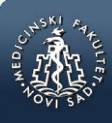md-medicaldata
Main menu:
- Naslovna/Home
- Arhiva/Archive
- Godina 2023, Broj 3
- Godina 2023, Broj 1-2
- Godina 2022, Broj 3
- Godina 2022, Broj 1-2
- Godina 2021, Broj 3-4
- Godina 2021, Broj 2
- Godina 2021, Broj 1
- Godina 2020, Broj 4
- Godina 2020, Broj 3
- Godina 2020, Broj 2
- Godina 2020, Broj 1
- Godina 2019, Broj 3
- Godina 2019, Broj 2
- Godina 2019, Broj 1
- Godina 2018, Broj 4
- Godina 2018, Broj 3
- Godina 2018, Broj 2
- Godina 2018, Broj 1
- Godina 2017, Broj 4
- Godina 2017, Broj 3
- Godina 2017, Broj 2
- Godina 2017, Broj 1
- Godina 2016, Broj 4
- Godina 2016, Broj 3
- Godina 2016, Broj 2
- Godina 2016, Broj 1
- Godina 2015, Broj 4
- Godina 2015, Broj 3
- Godina 2015, Broj 2
- Godina 2015, Broj 1
- Godina 2014, Broj 4
- Godina 2014, Broj 3
- Godina 2014, Broj 2
- Godina 2014, Broj 1
- Godina 2013, Broj 4
- Godina 2013, Broj 3
- Godina 2013, Broj 2
- Godina 2013, Broj 1
- Godina 2012, Broj 4
- Godina 2012, Broj 3
- Godina 2012, Broj 2
- Godina 2012, Broj 1
- Godina 2011, Broj 4
- Godina 2011, Broj 3
- Godina 2011, Broj 2
- Godina 2011, Broj 1
- Godina 2010, Broj 4
- Godina 2010, Broj 3
- Godina 2010, Broj 2
- Godina 2010, Broj 1
- Godina 2009, Broj 4
- Godina 2009, Broj 3
- Godina 2009, Broj 2
- Godina 2009, Broj 1
- Supplement
- Galerija/Gallery
- Dešavanja/Events
- Uputstva/Instructions
- Redakcija/Redaction
- Izdavač/Publisher
- Pretplata /Subscriptions
- Saradnja/Cooperation
- Vesti/News
- Kontakt/Contact
 Pasterovo društvo
Pasterovo društvo
- Disclosure of Potential Conflicts of Interest
- WorldMedical Association Declaration of Helsinki Ethical Principles for Medical Research Involving Human Subjects
- Committee on publication Ethics
CIP - Каталогизација у публикацији
Народна библиотека Србије, Београд
61
MD : Medical Data : medicinska revija = medical review / glavni i odgovorni urednik Dušan Lalošević. - Vol. 1, no. 1 (2009)- . - Zemun : Udruženje za kulturu povezivanja Most Art Jugoslavija ; Novi Sad : Pasterovo društvo, 2009- (Beograd : Scripta Internacional). - 30 cm
Dostupno i na: http://www.md-medicaldata.com. - Tri puta godišnje.
ISSN 1821-1585 = MD. Medical Data
COBISS.SR-ID 158558988
RADNI APSENTIZAM I KVALITET ŽIVOTA OBOLJELIH OD DIJABETES MELITUSA
WORK ABSENTEEISM AND QUALITY OF LIFE OF PATIENTS WITH DIABETES MELLITUS
Authors
Vesna Krstović Spremo 1, Biljana Mijović 1,2
1Univerzitet u Istočnom Sarajevu, Medicinski fakultet Foča, Katedra za primarnu zdravstvenu zaštitu i javno zdravstvo, Republika Srpska, Bosna i Hercegovina
2Zavod za javno zdravlje Užice, Republika Srbija
The paper was received on 20.01.2017. / Accepted on 31.01.2017
Correspondence to
Vesna Krstović-Spremo
University of East Sarajevo Department of Occupational Medicine, Faculty of Medicine Foča,
East Sarajevo, Republic of Srpska,
Bosnia and Herzegovina
Tel.: + 387 65 921 670 Fax.: + 387 58 210 007
e-mail: vesnakspremo@gmail.com
Abstract
Diabetes mellitus has a huge impact on the quality of life of people with diabetes, including also their work ability. Work absenteeism is a phenomenon of absence from work due to various causes, of which the most common are: sickness, occupational disease, injury at work, injury outside work, care of a family member or some other reason. Quality of life is mentioned as a specific term for medical research in the last few decades of the last century, giving the answer to the question what is a subjective assessment of the own level of functioning of the patient, as well as an objective assessment of the health status of individuals or populations. Objective is to examine the quality of life of patients with diabetes in terms of work absenteeism as well as their overall quality of life. Material and Methods. The research was done by type of cross-sectional study using the standard methodology of the WHO among patients of the two primary health care centers Pale and East Sarajevo between May 2012 and November 2012. The sample consisted of 150 randomly selected patients with diabetes, who are insulin dependent. Subjects were divided into two groups according to the working status of the employees, professional working personnel and the unemployed. As an instrument of research used a questionnaire WHO for testing the quality of life (SF-36), as well as specially designed general questionnaire for test purposes. Statistical analysis of the obtained data was performed in SPSS. Results. The obtained values indicate that the quality of life (QOL) of patients with diabetes is significantly reduced compared to the QOL of general population (50.0). Work absenteeism in the last year was found in as many as 67.7% of respondents. According to the questionnaire of the quality of life values of all domains of SF-36v2 in patients who were not on sick leave are higher than the value of the domain of the respondents who were absent from work, however, differences of domain values are not statistically significant for the domain PF (p = 0.375), RP ( p = 0.837) and BP (p = 0.326), VT (p = 0.305), SF (p = 0.687), RE (p = 0.386) and the MH (p = 0.418) and is statistically significant in the domain of GH (p = 0.019).The differences value of summary scores were not statistically significant in any of the PCS (p = 0.164) as well as MCS (p = 0.417). Conclusion: Work absenteeism occurs in a high percentage in patients with diabetes. The quality of life of people with diabetes is significantly worse in all tested domains compared to the average population, but in terms of work absenteeism of employees shows deviations in the domain of general health (GH). Due to the epidemic nature of diabetes, although it is non-infectious, mass disease, it would be useful as part of preventive action to take measures for longer preservation of work ability of patients, so as to reduce the appearance of their work disability.
Key words
diabetes, quality of life, work absenteeism.
Sažetak
Dijabetes melitus ima ogroman uticaj na kvalitet života oboljelih osoba, a u sklopu toga i na njihovu radnu sposobnost. Radni apsentizam je pojava izostanka sa posla usljed različitih uzroka od kojih su najčešći: bolest, profesionalna bolest, povreda na radu, povreda van rada, njega člana porodice ili neki drugi razlog. Kvalitet života se pominje kao specifičan termin u medicinskim istraživanjima unazad nekoliko poslednjih decenija prošlog vijeka dajući odgovor na pitanje kakva je subjektivna procjena vlastitog stepena funkcionisanja samog pacijenta, ali i objektivnu procjenu zdravstvenog stanja pojedinca ili populacije. Cilj rada je ispitivanje kvaliteta života pacijenata oboljelih od dijabetesa sa aspekta radnog apsentizma kao i ispitivanje njihovog opšteg kvaliteta života. Materijal i metode rada. Istraživanje je obavljeno po tipu studije presjeka po jedinstvenoj metodologiji SZO među pacijentima Doma zdravlja Pale i Doma zdravlja Istočno Sarajevo periodu od maja 2012. do novembra 2012.godine. Uzorak je činilo 150 slučajno odabranih pacijenata oboljelih od dijabetesa, a koji su inzulin zavisni. Ispitanici su podijeljeni u dvije grupe prema radnom statusu na zaposlene tj, profesionalno radno angažovane i nezaposlene. Kao instrument istraživanja korišteni su upitnik SZO za ispitivanje kvaliteta života (SF-36),kao i posebno kreiran opšti upitnik za potrebe ispitivanja. Statistička obrada ovako dobijenih podataka je vršena u programu SPSS. Rezultati. Dobijene vrijednosti ukazuju da je kvalitet života (QOL) ispitanika koji boluju od dijabetesa značajno umanjen u odnosu na QOL prosječne populacije (50,0). Radni apsentizam tj. bolovanje u poslednjoj godini je utvrđeno kod čak 67,7% ispitanika. Prema upitniku o kvalitetu života vrijednosti svih domena upitnika SF-36v2 kod ispitanika koji nisu bili na bolovanju veće su od vrijednosti domena ispitanika koji su odsustvovali sa posla, međutim dobijene razlike vrijednosti domena nisu statistički značajne za domene PF (p= 0,375), RP (p= 0,837) i BP (p= 0,326), VT (p= 0,305), SF (p= 0,687), RE (p= 0,386) i MH (p= 0,418), a statistički su značajne kod domena GH (p= 0,019). Dobijene razlike vrijednosti sumarnih skorova nisu statistički značajne ni kod PCS (p= 0,164) kao ni kod MCS (p= 0,417). Zaključak. Radni apsentizam se kod oboljelih od dijabetesa javlja u visokom procentu. Kvalitet života oboljelih od dijabetesa je značajno lošiji u svim ispitivanim domenima u odnosu na neoboljele, a sa aspekta radnog apsentizma zaposlenih pokazuje odstupanja u domenu opšte zdravlje (GH ).Zbog epidemijskog karaktera dijabetesa, iako je to nezarazna, masovna bolest bilo bi korisno u sklopu preventivnog djelovanja poduzimati mjere za duže očuvanje radne sposobnosti oboljelih, čime bi se smanjila i pojava njihove radne invalidnosti.
Ključne reči
dijabetes, radni apsentizam, kvalitet života
References
- Quality of Life Assessment: Annotated Bibliografphy, Geneva, 1994. available from: http// www.vho.int (evidence) assessment-instruments/qol/qll.htm (last accessed 17.11.2016.)
- Mc Horney CA, Ware JE, Jr, Raczek AE. The MOS 36-Item Short-Form Health Survey (SF-36): II. Psychometric and clinical tests of validity in measuring physical and mental health constructs. Med Care. 1993;31 (3):247–263.
- Ware JE, Snow KK, Kosinski M, Gandek, B. SF-36 Health Survey Manual and Interpretation Guide. Boston, MA: New England Medical Center, The Health Institute,1993
- Ware JE,et al. Version 2 of the SF-36 Health Survey 2nd edition, Feb 26, 2001, ISBN: 1-891810-06-5.
- Torrance G. W.: Utility approach to measuring health-related quality of life., Journal of chronic deseases, 1987; 40 (6): 593-603.
- Reif, N.: Principi stručnog vještačenja u mirovinskom (penzijskom) i invalidskom osiguranju. U: Čapeta, R., urednik. Radna sposobnost i invalidnost. Čakovec-Zagreb: SIZ MiO RH, 1986: 57-76.
- Pavičević, L. i Bobić, J.: Stres na radu. U: Šarić M. i Žuškin E. urednik, Medicina rada i okoliša, Medicinska naklada Zagreb, 2002: 530-37.
- Glasziou P, Alexander J, Beller E, Clarke P. Which health-related quality of life score? A comparison of alternative utility measures in patients with Type 2 diabetes in the ADVANCE trial. Health Qual Life Outcomes 2007; 5: 21.
- Bosić-Živanović D, et al. Vojnosanitetski Pregled 2012;69 (10) : 858-863
- Rubin R., Stress and Depression in Diabetes In : Fonseca V. Clinical Diabetes. New Orleans, Saunders-Elsevier, 2006; p270-71.
- Hauser S.,Psychiatric disorders In : Harisons Principles of Internal Medicine,Mc Graw Hill, 1998; p 955.
- Polonsky, W.H. Emotional and quality-of-life aspects of diabetes management. Curr Diab Rep. 2002 ; 2 (2):153–9
- Peyrot M,,Rubin RR: Levels and risk of depression and anxiety symptomatolgy among diabetic adults. Diabetes Care 1997; 20 (4): 585-590.
- Yang W, Dall TM, Halder P, Gallo P, Kowal SL, Hogan PF, Economic costs of diabetes in the U.S. in 2012. Diabetes Care. 2012; 36(4):1033-46.
- IDF Diabetes Atlas the 7-th edition Brussels 2016 : available from: http// www. idf.org (last accessed 17.11.2016.)
- Smith-Spangler CM, Bhattacharya J, Goldhaber-Fiebert JD. Diabetes, its treatment, and catastrophic medical spending in 35 developing countries. Diabetes Care. 2012;35(2)319–26.
- Global action plan for the prevention and control of noncommunicable diseases 2013-2020. Geneva: World Health Organization; 2013. available from: http// www.vho.int (last accessed 17.11.2016.)
- Oberlinner C, Ott MG .Nasterlack M , Yong M, Messeer P, Zober A. Medical program for shift workers – impacts on chronic disease and mortality outcomes SJWEH 2009;35(4):309-318
- Kroenke CH, Spiegelman D, Manson J, Schernhammer ES, Colditz GA, et al. Work characteristics and incidence of type 2 diabetes in women. Am J Epidemiol 2007 15; 165 (2): 175–83.
UDK: 314.422.2(1-773) "2006/2016"
COBISS.SR-ID 230577420
PDF Krstović Spremo V. and Mijović B. •MD-Medical Data 2017;9(1): 051-055
 Medicinski fakultet
Medicinski fakultet